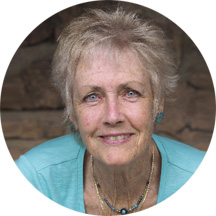I was 14 years old when my folks and I walked onto the grounds of Dachau concentration camp in Germany. I remember the utter silence. I remember the numbness as I looked at photographs of hollow-eyed bodies piled high, touched the cold metal of the gas chambers and ovens, and felt the murderous darkness of the buildings. When I recall Dachau, I am instantly standing on the edge of a culvert full of starved, naked bodies.
Twenty years later, I was teaching and doing therapy with women in abusive relationships. These women were depressed, angry, hopeless, and many saw themselves as helpless victims. I related what I had seen as a teenager and the stories I had read of those who survived the greatest abuses humankind can deal out. And I shared the belief that we can be in terrible situations, but we don’t have to live as victims. If we realize we can find meaning in our lives and make choices, we can live—not just survive.
Viktor Frankl (1905-1997), an Austrian physician, was one of my inspirations. Frankl’s mother, father, brother and wife died in the camps or were sent to the gas ovens. Only his sister and he survived. I had to find out how he could have lost so much, suffered such brutality, cold and hunger, and faced extermination every hour—and lived as a man who helped people find meaning in their lives.
In his book, Man’s Search for Meaning,” Dr. Frankl tells of his life in the concentration camp and his theory of psychology, “logotherapy,” based on his belief that the primary motivating force in human beings is to find meaning in our lives. “Life is never made unbearable by circumstances, but only by lack of meaning and purpose,” he writes.
This philosophy, grounded in the most horrific conditions, is not easy to hear. For it includes finding meaning in our own death and suffering as they are part of life. We are responsible for grasping that meaning.
Frankl found that thinking of his wife (he knew not whether she was alive or dead) while enduring the savagries of the camp gave his life meaning: ““For the first time in my life I saw the truth as it is set into song by so many poets, proclaimed as the final wisdom by so many thinkers. The truth—that Love is the ultimate and highest goal to which man can aspire. Then I grasped the meaning of the greatest secret that human poetry and human thought and belief have to impart: The salvation of man is through love and in love. I understood how a man who has nothing left in this world still may know bliss, be it only for a brief moment, in the contemplation of his beloved.”
The point of relating what Frankl learned isn’t that we should feel ashamed when we’re depressed over loss of a job since so many others have endured so much worse. The point is that we can create our attitude toward our hardship. We have the responsibility to find its meaning in order to live more fully.
I”m writing this piece in two parts because I believe it’s important to think about these beliefs slowly. PART II will appear next.

